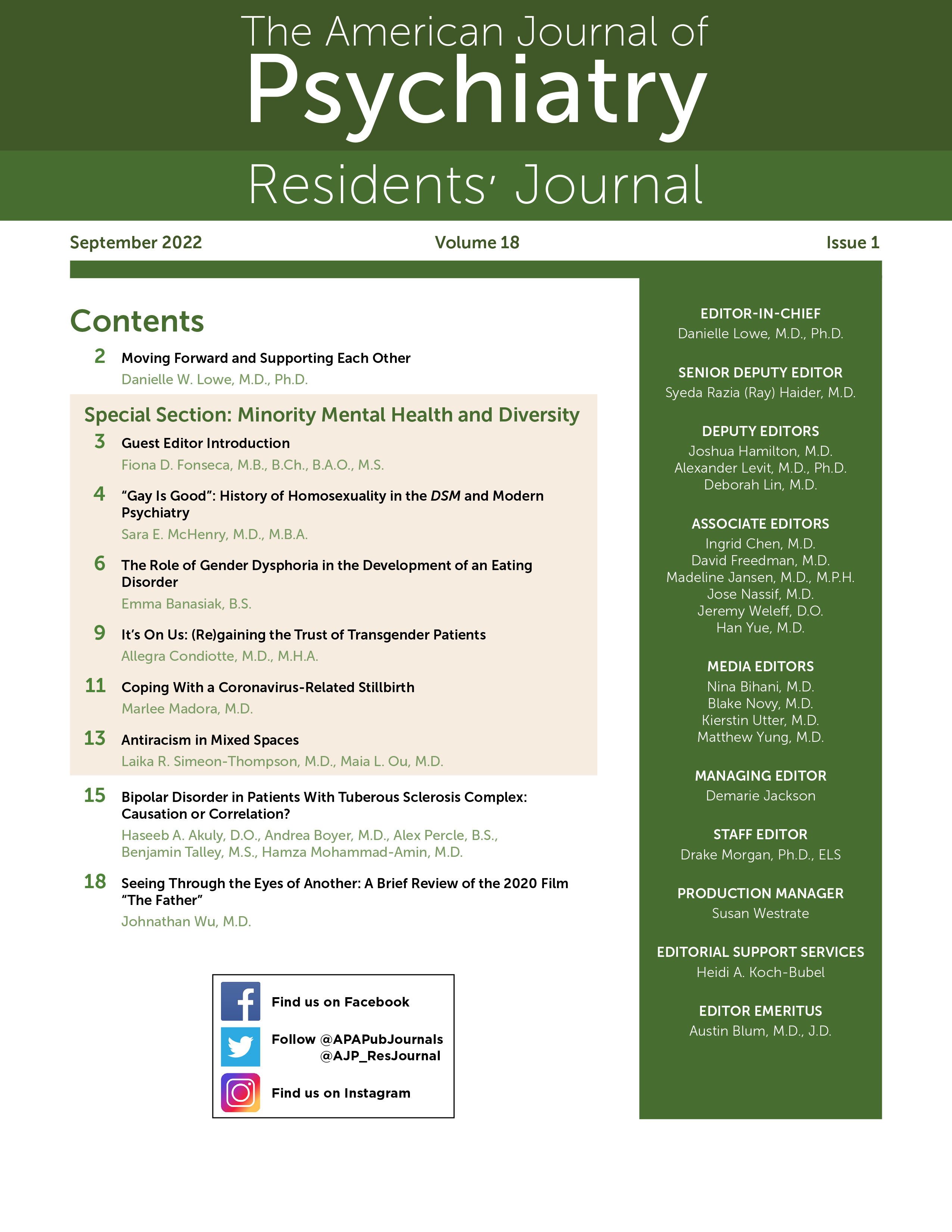Welcome to the 18th volume of the American Journal of Psychiatry Residents’ Journal (AJP-RJ)! With this resident-led, peer-reviewed publication of the American Psychiatric Association, we guide trainees through a constructive peer review and provide a valued resource for medical students, residents, and fellows across North America.
I am excited and humbled to continue the tradition as the 2022–2023 editor-in-chief. When I first interviewed to join the editorial board of the AJP-RJ, I expressed a desire to better understand the peer review and editorial process of an academic journal. Over the past couple of years, I have watched and learned from the leadership of Austin Blum, J.D., M.D., and Matthew Edwards, M.D., the two most recent editor-in-chief emeriti, and I can honestly say that I am still learning every day. I do not think the feeling of imposter syndrome will ever quite dissipate. That being said, the experience I have gained is invaluable, and I encourage other trainees to participate as authors and reviewers.
During my term as senior deputy editor and now editor-in-chief, I am focusing on developing improvement strategies for manuscript retention throughout the review process. Residents are busy with competing and shifting clinical responsibilities in addition to writing a manuscript. Receiving a major revision request creates a burst of emotions that can lead to stagnation on a manuscript (
1). Since 2019, for 41% of manuscripts submitted to
AJP-RJ that received an initial major revision decision, authors did not resubmit a revision. This phenomenon is not unique to psychiatry trainees, and many articles have been published on how to persevere and draft revision responses (
1–
3).
Over the past year, Dr. Blum and I reviewed manuscripts that had not resubmitted first revisions within two months and sent personalized encouragement letters to authors that seemed to be approaching acceptance. Eighty-one percent of these authors submitted revisions, and 56% have been accepted for publication to date. Several authors (now published) responded to the e-mails, stating they likely would not have moved forward without the direct communication. I’m excited to continue this project with this year’s senior deputy editor, Ray Haider, M.D., and our incoming 2022–2023 editorial board as we identify ways to support more trainee authors to publish their work.
We start off the year with an issue that truly is the culmination of the previous editorial board efforts, particularly those of Fíona Fonseca, M.D., who is the guest editor of the Minority Mental Health and Diversity theme section. I have appreciated our thoughtful discussions about the issues highlighted in these manuscripts, and I hope you and your colleagues do as well. In addition to the AJP-RJ quarterly issues, stay tuned for upcoming editions of the AJP-RJ Podcast series produced by our media editors Matthew Yung, M.D., Nina Bihani, M.D., Kiersten Utter, M.D., and Blake Novy, M.D., highlighting diverse careers and hot topics within psychiatry. I encourage you to join us this year as readers, authors, listeners, and learners of this wonderful field of psychiatry.
